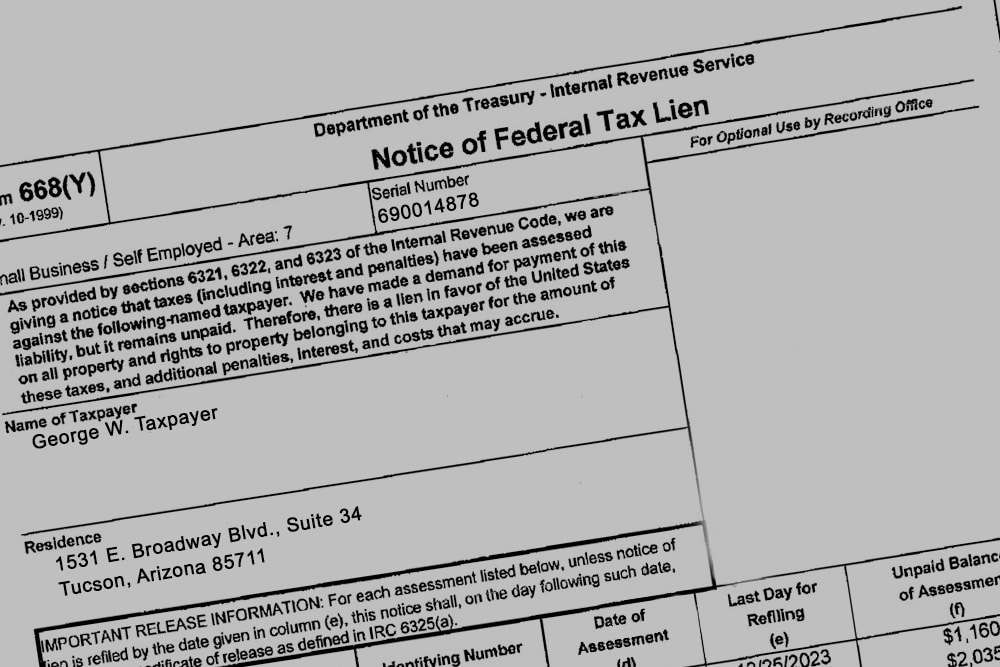It goes by a rather awkward acronym – NFTL – Notice of Filing of Tax Lien. If you owe the IRS money and, after their demand you have not paid it then you are subject to getting a lien filed against you. But what does this really mean? How does a lien work and how does it affect you? These questions will be answered in this article.
The first thing you should know is that a lien is a “security” device, not a “collection” device. A lien collects nothing. It is merely the IRS’s way of telling the world that you are in debt to them. It established the IRS’s position in line in front of other creditors who file their liens later than the IRS. The lien, filed in the your county recorder’s office, will generally sit for years without you even knowing about it. Of course the IRS is required by law to notify you of the lien within five days of the filing. However, if you do not open the IRS letter, you may never know about it. That is until you decide to sell your house, buy a house, buy a car, borrow from a credit union or take out life or property insurance The lien will affect all of these transactions, negatively. With a lien on file against you, it will be difficult to get a car loan or house mortgage, your insurance premiums may rise and the credit union may not lend you any money (unless it is to pay off the IRS debt).
The lien will affect all of your property and rights to property. If you are due to inherit a lot of money, the IRS will assert its lien and attempt to pay your tax debt out of the inherited funds. If you sell your house, the IRS will want to be paid from the proceeds of the sale. In fact, you will not be able to sell it without a large chunk of the equity going to the IRS.
Tax relief companies often suggest they can get the lien removed. There are only a few ways the lien can get removed and none of them involve the smooth negotiation skills of these scam artists. You can pay off the debt, you can file a payment bond (a promise to pay sort of) or you can ask the IRS to subordinate the lien so that you can borrow money for your business or sell your home to pay off the debt. However other than these measures, the lien is going to stay and it will continue to affect you and your credit.
Will an offer in compromise affect a tax lien? No. Filing an offer in compromise will not have any affect on the tax lien. However, if the IRS accepts your offer and you pay the amount of the offer in full then the IRS will remove the lien. Will an installment agreement affect a tax lien? No. You can certainly enter into an agreement to pay off your tax liability over time, but the IRS will not remove the lien until the amount that you owe is paid in full. Will being declared uncollectible affect a tax lien? No. The lien will remain even if the IRS declares you uncollectible and stops all collection action. Does the IRS have to file a lien before they garnish your wages or empty your bank account? No. They can garnish your wages and empty your account without a lien in place. They do need to send you a notice of intent to levy, but this has nothing to do with the tax lien.
Arthur Weiss, Esquire
Law Office of Arthur Weiss, P.C.
2135 Grant Rd.
Tucson, AZ 85719
520-319-1124
https://artweisslaw.com
